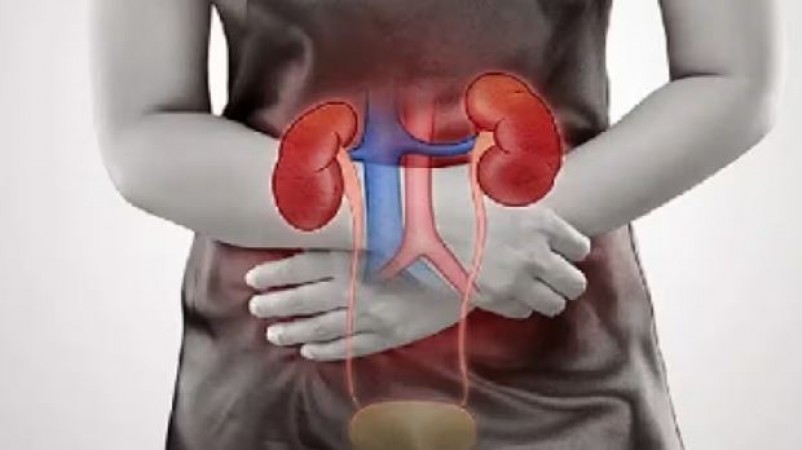
Urinary Tract Infections (UTIs) are more prevalent in women compared to men. If left untreated, UTIs can escalate to serious health issues, including complications in the uterus and affecting reproductive health. For pregnant women, it’s particularly crucial to be vigilant about UTI symptoms. In severe cases, UTIs can lead to sepsis or kidney-related problems, which can be life-threatening. Understanding the causes, symptoms, and preventive measures of UTIs can help in managing and preventing these infections effectively.
What is a Urinary Tract Infection (UTI)?
A UTI is an infection that can occur in any part of the urinary tract, including the kidneys, ureters, bladder, or urethra. Infections typically start in the lower urinary tract (bladder and urethra) and can ascend to involve the upper urinary tract (ureters and kidneys).
Why Are UTIs More Common in Women?
Women are more prone to UTIs due to anatomical reasons:
Shorter Urethra: Women have a shorter urethra compared to men, which allows bacteria easier access to the bladder.
Proximity to the Anus: The urethra is closer to the anus in women, increasing the risk of bacterial transfer.
Causes of UTIs
UTIs can be caused by various factors, including:
Inadequate Personal Hygiene: Failure to maintain proper hygiene, especially during menstruation, can lead to bacterial infections.
Infrequent Urination: Holding urine for extended periods can facilitate bacterial growth.
Low Fluid Intake: Not drinking enough water can reduce the flushing out of bacteria from the urinary tract.
Tight-Fitting Clothing: Wearing tight undergarments can trap moisture and create an environment conducive to bacterial growth.
Recognizing UTI Symptoms
If you notice the following symptoms, you may have a UTI:
Pain in the Lower Abdomen: A common symptom is discomfort or pain in the lower abdomen or pelvic area.
Itching or Irritation: Persistent itching or irritation in the genital area.
Frequent Urination: A strong and frequent urge to urinate, often with little urine output.
Burning Sensation: A burning sensation or pain during urination.
Unpleasant Urine Odor: Noticeable changes in urine odor.
Fatigue and Nausea: General fatigue, feeling unwell, or nausea.
Lower Back Pain: Pain in the lower back, often indicating that the infection may have reached the kidneys.
Preventing UTIs
To reduce the risk of developing a UTI:
Stay Hydrated: Drink plenty of water throughout the day to help flush bacteria from the urinary tract.
Maintain Good Hygiene: Practice proper personal hygiene, including changing menstrual pads and tampons regularly.
Avoid Tight Clothing: Wear loose-fitting, breathable clothing to minimize moisture buildup.
Do Not Hold Urine: Respond promptly to the urge to urinate to avoid bacterial growth.
Use Proper Wiping Techniques: Always wipe from front to back after using the toilet to prevent bacteria from spreading.
Dietary Tips for Managing UTIs
Incorporate these foods and beverages into your diet to help manage and prevent UTIs:
Cranberry Juice: Contains compounds that may help prevent bacteria from adhering to the urinary tract.
Apple Cider Vinegar: May have antibacterial properties that can assist in managing UTI symptoms.
Coconut Water: Helps in maintaining hydration and may support urinary health.
Coriander Water: Known for its anti-inflammatory properties that may aid in reducing UTI symptoms.
Yogurt: Probiotic-rich yogurt can support a healthy balance of bacteria in the urinary tract.
Avoid or limit:
Caffeinated Beverages: Coffee and tea can irritate the bladder.
Citrus Fruits: Highly acidic fruits can exacerbate UTI symptoms.
Spicy Foods: May irritate the urinary tract.
Sugary Drinks: Can promote bacterial growth.
When to See a Doctor
If you experience symptoms of a UTI, it is essential to consult a healthcare professional, especially if:
Symptoms Persist: Despite taking preventive measures or trying home remedies.
Severe Symptoms: Such as high fever, chills, or significant back pain occur.
Pregnancy: If you are pregnant and suspect a UTI, seek medical attention promptly.
By understanding the symptoms and causes of UTIs and following preventive measures, you can manage and reduce your risk of urinary tract infections effectively.
Does a heart attack really come by giving warning?